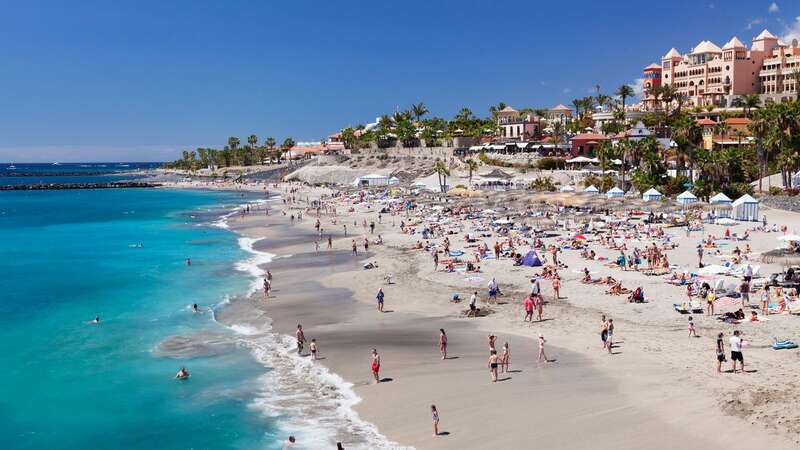Brits heading to the Canary Islands have been warned about the dangers of taking selfies this summer.
The Association for the Prevention of Drowning and Aquatic Accidents, "Canarias, 1500 Km de Costa", says more and more people are posing for selfie pics at viewpoints and clifftops but it could prove fatal.
The organisation is also warning about ignoring a red flag, bathing on unsupervised beaches, using floats in the sea or being caught up in a "return current".
"Imprudence can lead to drowning or another type of accident both on beaches and in swimming pools, rivers and other bathing areas," said a spokesman.
As the summer season peaks, some of Spain's most popular holiday spots are preparing to welcome millions of beachgoers.
 Lisa Armstrong's fans go crazy over her stunning new hair transformation
Lisa Armstrong's fans go crazy over her stunning new hair transformation
 Brits are being warned to check their surroundings when taking selfies (E+)
Brits are being warned to check their surroundings when taking selfies (E+)While the scenery is spectacular, Brits are being warned to be extra vigilant if taking photos on the coast, especially on cliffs or rocky areas. "You are exposing yourself to having an accident," the spokesman warned.
Tourists are also being warned to avoid filming dramatic waves, with 80 per cent of the accidents at sea caused by ignoring a red flag which signifies no bathing.
They're also being warned of 'return currents'. "It is the second cause of death by submersion," said the spokesman. "A 'rip current' can have the force of ten Olympic swimmers. Therefore, if you are in trouble and cannot get out, don't fight against the current. Save energy and stay calm, in addition to waving your arms so people can see you."
There is also a warning about children as it only takes 27 seconds for a twelve-month-old baby to drown.
"It is also advised not to use floats in the sea," said the spokesman. "A float is not a life preserver, it is an inflating toy. Especially dangerous are those that have the shape of an animal (swans, unicorns, flamingos, etc.), since their trunk and head act as a sail effect and will drag the bather out to sea. Circular sleeves and floats have a highly questioned safety."
 The Canaries welcome millions of holidaymakers every year (Getty Images/iStockphoto)
The Canaries welcome millions of holidaymakers every year (Getty Images/iStockphoto)As well as being vigilant when taking photos, Brits heading to Spain should take note of new tourist rules that have come into force ahead of the summer.
Since the Covid pandemic, there have been changes implemented at a number of Spanish hotspots.
These have included new smoking bans on a number of beaches, drinks limits at all-inclusive hotels in certain resorts in the Balearic Islands, dress code rules at restaurants and more.
Meanwhile, new passport rules are also in place following Brexit.
If you're heading to Spain, you need to make sure your passport was both issued in the past 10 years at the time of entry, and it must be valid for at least three months on the date that you leave the country.
 Abbey Clancy mum-shamed over snap of son, three, sucking dummy
Abbey Clancy mum-shamed over snap of son, three, sucking dummy
You will not need a visa as you can travel to countries in the Schengen area for up to 90 days in any 180-day period without one.
But make sure you get your passport stamped when you enter or exit the country, as this is used to keep track of how long you've been there for.
Read more similar news:
Comments:
comments powered by Disqus


































